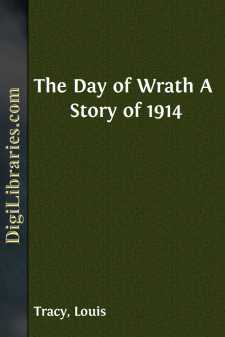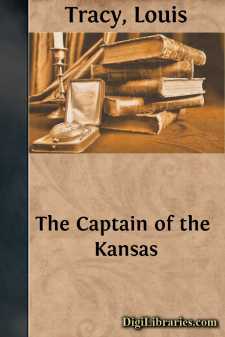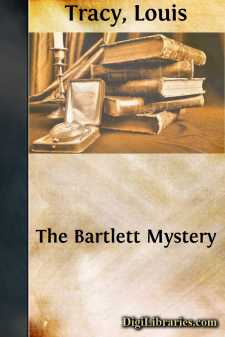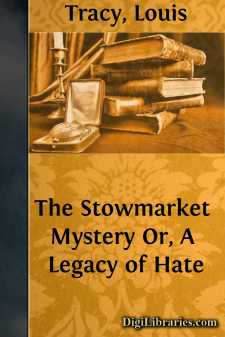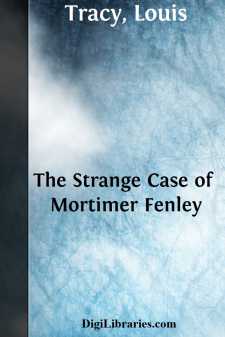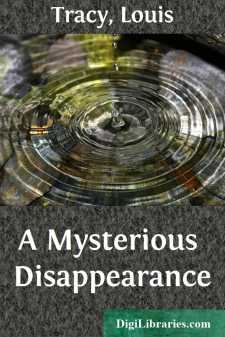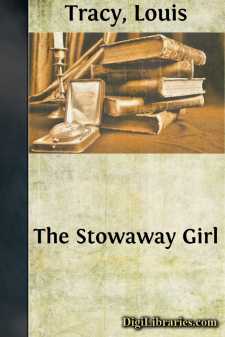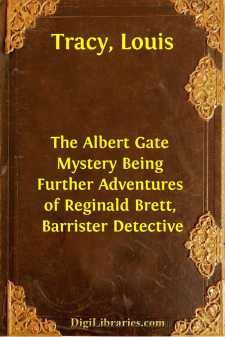Categories
- Antiques & Collectibles 13
- Architecture 36
- Art 48
- Bibles 22
- Biography & Autobiography 813
- Body, Mind & Spirit 142
- Business & Economics 28
- Children's Books 17
- Children's Fiction 14
- Computers 4
- Cooking 94
- Crafts & Hobbies 4
- Drama 346
- Education 46
- Family & Relationships 57
- Fiction 11829
- Games 19
- Gardening 17
- Health & Fitness 34
- History 1377
- House & Home 1
- Humor 147
- Juvenile Fiction 1873
- Juvenile Nonfiction 202
- Language Arts & Disciplines 88
- Law 16
- Literary Collections 686
- Literary Criticism 179
- Mathematics 13
- Medical 41
- Music 40
- Nature 179
- Non-Classifiable 1768
- Performing Arts 7
- Periodicals 1453
- Philosophy 64
- Photography 2
- Poetry 896
- Political Science 203
- Psychology 42
- Reference 154
- Religion 513
- Science 126
- Self-Help 84
- Social Science 81
- Sports & Recreation 34
- Study Aids 3
- Technology & Engineering 59
- Transportation 23
- Travel 463
- True Crime 29
Cynthia's Chauffeur
by: Louis Tracy
Description:
Excerpt
THE HIRED CAR
Derby Day fell that year on the first Wednesday in June. By a whim of the British climate, the weather was fine; in fact, no rain had fallen on southern England since the previous Sunday. Wise after the event, the newspapers published cheerful “forecasts,” and certain daring “experts” discussed the probabilities of a heat wave. So London, on that bright Wednesday morning, was agog with excitement over its annual holiday; and at such a time London is the gayest and liveliest city in the world.
And then, wholly independent of the weather, there was the Great Question.
From the hour when the first ’bus rumbled Citywards until some few seconds before three o’clock in the afternoon the mass of the people seemed to find delight in asking and answering it. The Question was ever the same; but the answer varied. In its way, the Question formed a tribute to the advance of democracy. It caused strangers to exchange opinions and pleasantries in crowded trains and omnibuses. It placed peers and commoners on an equality. During some part of the day it completely eclipsed all other topics of conversation.
Thus, young Lord Medenham made no pretense of shirking it while he stood on the steps of his father’s mansion in Cavendish Square and watched his chauffeur stowing a luncheon basket beneath the front seat of the Mercury 38.
“You know a bit about racing, Tomkinson,” he said, smiling at the elderly butler who had brought the basket out of the house. “What’s going to win?”
“The King’s horse, my lord,” replied Tomkinson, with the unctuous conviction of a prelate laying down a dogma.
“Is it as sure as all that?”
“Yes, my lord.”
“Well, I hope so. You are on a sovereign—By gad, you really are, you know.”
Tomkinson was far too keenly alive to the monetary side of the transaction to pay heed to the quip. His portly figure curved in a superb bow.
“Thank you, my lord,” said he.
“Remind me this evening if you are right. I shall not forget to damn you if you are wrong.”
Tomkinson ignored the chance of error and its consequences.
“Your lordship will be home for dinner?”
“Yes, I have no other engagement. All ready, Dale?” for the chauffeur was in his seat, and the engine was purring with the placid hum of a machine in perfect tune.
Tomkinson moved grandly down the steps, ushered Viscount Medenham into the car, and watched its graceful swoop into Holles Street.
“Times have changed,” said he to himself. “Twenty years ago, when I first came here, his lordship’s father would have given me a tip, and he wouldn’t have been coming home for dinner, neether.”
By that last fatal word Tomkinson betrayed the cloven hoof. At least, he was no prelate—and his assumption of the prophetic rôle would soon be put to the test. But he had answered the Great Question.
The Mercury crossed Oxford Street and insinuated itself into the aristocratic narrowness of Mayfair. It stopped in Curzon Street, opposite a house gay with flowers in window-boxes....



